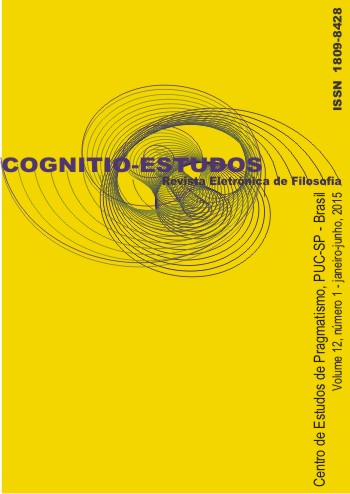The nature of human action: an analysis of Thomas Aquinas’s moral thinking
Keywords:
Reason. Will. Beatitude. Freedom. Action.Abstract
The purpose of this article is to explain and analyze the nature of human action according to Aquinas as an attempt to present the starting point of Aquinas’s moral thinking. In this perspective, this paper will address beatitude, which is the purpose of will; of free will, as a necessary condition for all moral action; and the structure of human action given by the dimensions of intention, advice, consent and election. Will, when moved by reason, can reach the ultimate end of things (beatitude) and, thus, enable the organization of action toward its natural end.
Metrics
References
AQUINO, Tomás de. Suma contra os gentios. Porto Alegre: EDIPUCRS, 1996.
______ Suma teológica. São Paulo: Loyola, 2001. v. 1
______ Suma teológica. São Paulo: Loyola, 2002. v. 2
______Suma teológica. São Paulo: Loyola, 2003. v. 3
AMEAL, João. A Revolução Tomista. Braga: Cruz, 1952.
BOEHNER, Philotheus; GILSON, Etienne. História da filosofia cristã. Trad. Raimundo Vier. 10 ed. Petrópolis: Vozes, 2007.
GARDEIL, H. D. Iniciação a filosofia de S. Tomás de Aquino. São Paulo: Duas Cidades, 1967.
GARRIGOU-LAGRANGE, Reginaldus. La síntesis tomista. Buenos Aires: Desclée de Brower et soc, 1946.
REALE, Giovanni; ANTISERI, Dário. História da filosofia: Antiguidade e Idade Média. São Paulo: Paulus, 1990. v. 1.
SILVA, Antonio Wardison C. Fundamentos filosóficos da ética em Tomás de Aquino. In: Revista Repensar, ano 2, n. 2, dez. 2008.
VAZ, Henrique C. De Lima. Escritos de filosofia IV: introdução à ética filosófica 1. São Paulo: Loyola, 1999.

